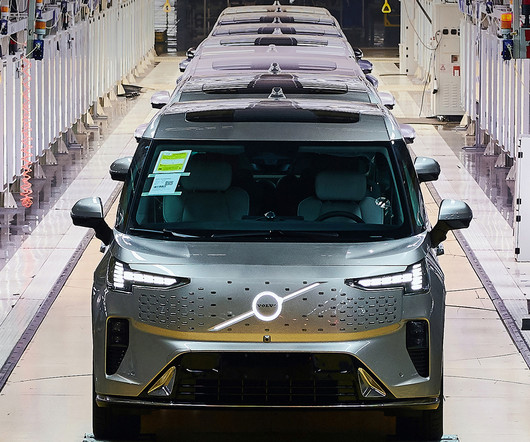Volvo makes its last diesel car and puts it in a museum
Baua Electric
MARCH 27, 2024
Swedish automaker Volvo has rolled out its last diesel-powered vehicle, after a 45-year relationship with the powertrain and cranking out millions of diesel cars. Between 2012 and 2016, diesel accounted for half of the company’s global sales. Since 1991, Volvo made more than 9 million vehicles with diesel engines.












Let's personalize your content